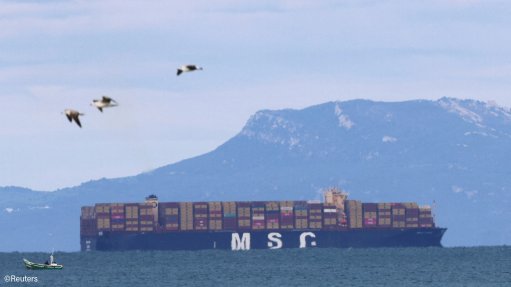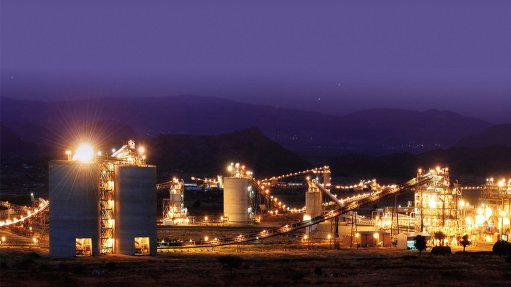Manufacturers, free trade can help to overcome Africa's energy crisis
African manufacturers have a significant role to play in helping to remedy the continent’s energy crises by developing innovative solutions for energy storage and access. By creating products tailored to the needs of the African context, manufacturers can help reduce energy poverty, increase energy efficiency and spur economic growth.
However, this depends on whether the right environment is created to help manufacturers expand operations and pursue cross-border investment opportunities, electromechanical equipment manufacturer Actom Group CEO and Manufacturing Circle chairperson Mervyn Naidoo says.
Reducing energy poverty and spurring economic growth can only be accomplished once manufacturers achieve economies of scale. However, there is currently very little economic growth across many parts of the continent owing to a lack of investment in manufacturing capacity expansion.
"Thus, Africa must leverage mechanisms such as the African Continental Free Trade Area (AfCFTA)," he states.
Africa is in the throes of an energy crisis owing to several factors.
"Underinvestment in infrastructure, a lack of access to affordable and reliable sources of electricity, a lack of investment in renewable energy and a lack of coordination between the public and private sectors have all contributed to the state of energy poverty that most nations on the continent find themselves in today.
"Further, many African countries face political and economic challenges, which has hindered the development of their energy resources, and has contributed to many African countries losing crucial skills and expertise for energy generation," he says.
The continent does, however, present huge scope for the construction of energy infrastructure, and an increase in investment in this space would drive local manufacturers to expand into various regions on the continent, Naidoo points out.
It is expected that the AfCFTA will accelerate this process and, for example, pave the way for the vertical integration of the mining of minerals, such as vanadium and lithium, into the manufacturing of energy storage products.
In East Africa, some multinational companies are bringing their resources together to create manufacturing hubs as a way of expanding their operations and establishing a foothold in new markets. These industrial hubs are vehicles for technology transfer, job creation and a way for African companies to access and contribute to the economies in the region.
Additionally, such projects will be able to bring the technical expertise and maintenance capabilities closer to their customers enabling the creation of tailor-made solutions for those specific regions, he notes.
Simultaneously, solving Africa’s energy crisis requires the collaboration of the public and private sectors. For example, the removal of licensing requirements for renewable energy projects in South Africa has increased the scope for public-private partnerships.
However, policy certainty remains the key to encouraging the private sector to work with the public sector to address the energy crisis, Naidoo stresses.
"Africa’s energy crisis can be tackled effectively only if the continent’s manufacturers are empowered to exploit the depth of their manufacturing capability. Investment in manufacturing would not only solve the energy crisis but also create employment, especially as Africa has the youngest population in the world."
Under the agreement, AfCFTA members commit to eliminating tariffs on most goods and services over several years, ultimately increasing socioeconomic development, reducing poverty and making Africa more competitive in the global economy.
Long-term objectives include creating a single, liberalised market, reducing barriers to capital and labour to facilitate investment and developing regional infrastructure.
"Along with many other countries on the continent, South Africa could greatly benefit from the AfCFTA. South African manufacturers have not ventured into other African countries on a significant scale, with companies in the retail space making up the lion’s share of cross-border investments and expansion.
"The AfCFTA is a step in the right direction for South African manufacturers who have been reluctant to go beyond borders," says Naidoo.
Article Enquiry
Email Article
Save Article
Feedback
To advertise email advertising@creamermedia.co.za or click here
Press Office
Announcements
What's On
Subscribe to improve your user experience...
Option 1 (equivalent of R125 a month):
Receive a weekly copy of Creamer Media's Engineering News & Mining Weekly magazine
(print copy for those in South Africa and e-magazine for those outside of South Africa)
Receive daily email newsletters
Access to full search results
Access archive of magazine back copies
Access to Projects in Progress
Access to ONE Research Report of your choice in PDF format
Option 2 (equivalent of R375 a month):
All benefits from Option 1
PLUS
Access to Creamer Media's Research Channel Africa for ALL Research Reports, in PDF format, on various industrial and mining sectors
including Electricity; Water; Energy Transition; Hydrogen; Roads, Rail and Ports; Coal; Gold; Platinum; Battery Metals; etc.
Already a subscriber?
Forgotten your password?
Receive weekly copy of Creamer Media's Engineering News & Mining Weekly magazine (print copy for those in South Africa and e-magazine for those outside of South Africa)
➕
Recieve daily email newsletters
➕
Access to full search results
➕
Access archive of magazine back copies
➕
Access to Projects in Progress
➕
Access to ONE Research Report of your choice in PDF format
RESEARCH CHANNEL AFRICA
R4500 (equivalent of R375 a month)
SUBSCRIBEAll benefits from Option 1
➕
Access to Creamer Media's Research Channel Africa for ALL Research Reports on various industrial and mining sectors, in PDF format, including on:
Electricity
➕
Water
➕
Energy Transition
➕
Hydrogen
➕
Roads, Rail and Ports
➕
Coal
➕
Gold
➕
Platinum
➕
Battery Metals
➕
etc.
Receive all benefits from Option 1 or Option 2 delivered to numerous people at your company
➕
Multiple User names and Passwords for simultaneous log-ins
➕
Intranet integration access to all in your organisation




















